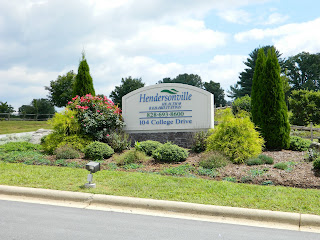I started writing two months ago about the teachings of our faith that give me comfort as I face the end of my life. The first is the forgiveness of my sins and the resulting restored relationship with God. The second is the resurrection.
The resurrection of Jesus after his death is our model of what our own resurrections will be like. The authors of the gospels go to great lengths to show that the resurrected Jesus had a physical presence. He ate fish, started a fire, walked down a road, and offered his wrists and side to be touched. The resurrected body has physicality. God's experiment of joining body and spirit is not abandoned in the next life. It is perfected.
I like that a lot. I have some pictures of myself before I became ill with ALS that I look at from time to time. In one I have just finished a kayaking trip in the Bahamas Appalachian Trail . It was good to be healthy, to eat good food, to hug my daughters, to kiss a woman, and stretch my legs on a mountain trail. I eagerly look forward to doing those things again.
N. T. Wright, an Anglican bishop, wrote about the afterlife in appealing terms in his book, Surprised by Hope. He emphasizes the new heaven and the new earth that we read about in Scripture. The Lord's Prayer which the Church has been praying for 20 centuries will finally be fulfilled. "Thy kingdom come, Thy will be done, on earth as it is in heaven," will be a reality. The earth will be put right and we who are willing to submit ourselves to God will enjoy a new Eden
In my opinion, and I could be wrong, the streets of gold and the gates of pearl we see in the book of Revelation are a metaphor. Heaven will be so wonderful that the most precious things on earth--gold and pearls--will be used to pave the streets and for hardware on doorways. The insipid picture of heaven that includes clouds and harps and white clothing looks like a crushing bore. I look forward to a robust heaven full of great tastes, aromas, beauty, music, and adventure. (Read C.S. Lewis' book The Great Divorce for more on this.) In addition to all these good things will be the even more wonderful presence of God.
There is disagreement among Christians about how all of this will play out. Depending upon the theory they accept, there are pre- millennialists, post- millennialists, and a- millennialists. One of my professors joked, "I am a PRO- millennialist. Whatever happens, I'm for it!"
Me, too.
(This article was first published in the November issue of the St. James Episcopal Church (Hendersonville, NC) newsletter.)








